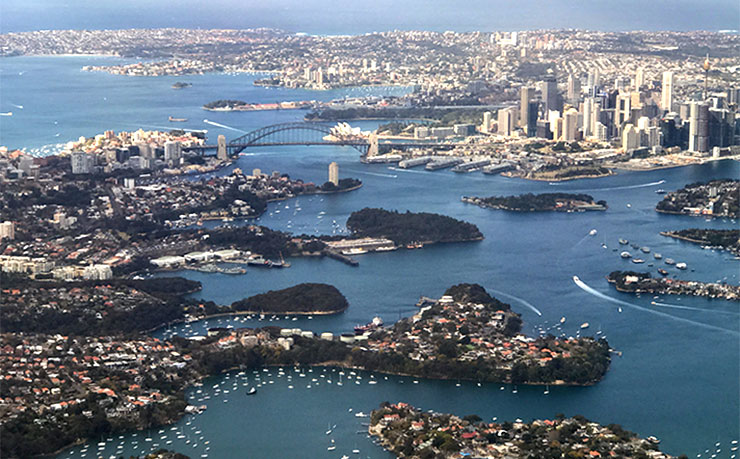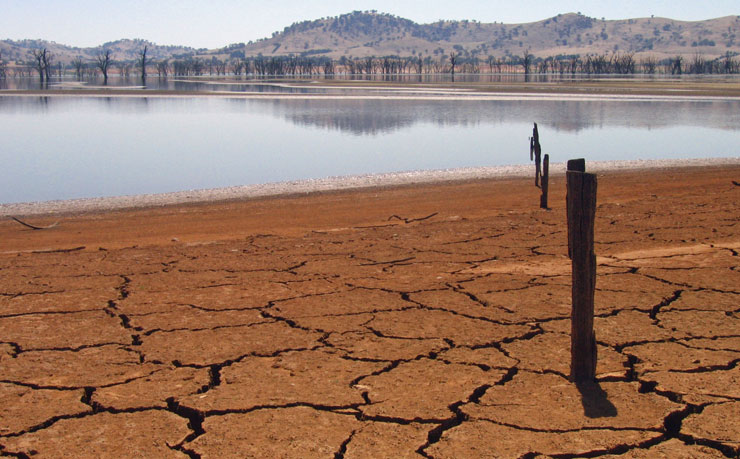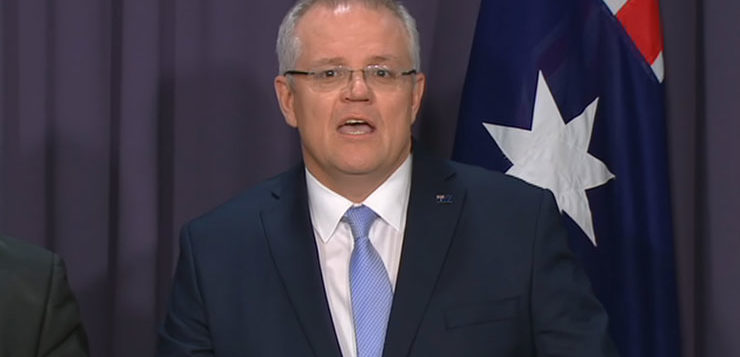The government says its ‘plan’ is working. Its hopes for re-election hinge on two economic measures which have become shorthand for our national aspirations. And while others may disagree on methodology, few in politics challenge those measures. So, can “jobs and growth” bring back the golden age? In the first of a 3-part series (plus a prequel, which you can read here), Mike Dowson examines our faith in growth.
At the age of 50, my mother contracted breast cancer. She discovered a lump, but didn’t get diagnosed for another year, by which time it was life-threatening.
My father was furious. “Why didn’t you say something?”
“I didn’t want to make a fuss,” she said.
She survived major surgery, but only just.
If you know any scientists, you may detect in them a kind of bewilderment, perhaps even despondency. This is especially true of those who study the environment. They’ve been warning us for years about the dangerous path we are on. They’ve built a mountain of evidence. They’ve peppered the news with shocking revelations. But politicians simply ignore them.
Debate is integral to science. It may take decades for consensus to emerge. But with the future of humans and the biosphere, the controversy is long over. The evidence is like a giant, neon arrow pointing the way. The other way.
Like my mother, we are reluctant to face an uncomfortable possibility. But unlike my mother’s case, the doctor has been coming to us with her diagnosis for half a century, and we have been turning her away. Now she is pounding on the door, imploring us to save ourselves, our children, our grandchildren, before it’s too late. So we turn up the TV, or put in our earbuds, to drown her cries.
You might think this is simply what a thriving economy demands. “You can’t make an omelette without breaking eggs.” The trouble is we’re running out of eggs. And now the omelette itself is harming people.
Rich and poor alike are vulnerable to a new malaise of alienation and despair which is adding to premature death. But a large and increasing number of Australians are missing out on even the material benefits. And this has nothing to do with a lack of resources.

One in five Australian children regularly goes without food. Yet every day we throw away more than enough to feed them. Over 100,000 people are homeless. But in our cities, there is a greater number of dwellings permanently unoccupied.
We are, right now, at the apex of the longest sustained period of economic growth in our history. If growth is so good for us, how come so many people – and more all the time – are suffering?
Why would we believe that the solution to our problems is more growth? Isn’t that the famous definition of insanity?
The Growth Story
Growth derives from the idea of progress. The virtue of progress seems self-evident. It would be easy to imagine it has always been so. But as a popular idea, it’s new.
The sociologist, Robert Nisbet, traced its lineage to ancient Athens via Christianity, where it’s emphasis was moral and religious. In the scientific Enlightenment, that became secular and materialist. Not until the 20th Century was it widely accepted, when it got attached to a crude but convenient measure of production.
Why didn’t people think this way before?
For nearly all the vast span of our evolution, humans lived interdependently in small groups. No doubt there were occasional upheavals, but within a human lifetime, change was mostly gradual. Relative stasis was the norm.
That is the context in which our brains were formed. From the artefacts they left behind, and from the Indigenous cultures that survived into the modern era, we can surmise that our distant ancestors understood life, not as competition for survival, nor as victory over nature, but as harmony within it.
So, what changed?
Put yourself in Europe in the Eighteenth Century. This is a time of violent upheaval. Nations are at war at home and conquering territories abroad. The ancient order is disintegrating with the rise of global commerce and industry.
You will very likely experience famine, infectious disease or occupation. Your community may be devastated. Your livelihood may be destroyed. It is unlikely you will live to old age, but if you do you will probably have lost those you love. You will most likely die in poverty.
But scientific advances are increasing our productive capacity. Adam Smith proposes that a free, expanding economy will bring benefits to everyone, even the very poor.
For your descendants, who acquire a say in the affairs of their country, this will turn out to be true. As more of the wealth from natural resources, exploited by mechanisation, is shared, they will come to enjoy a material standard of living previously available only to a tiny elite, and, in areas like medicine and communication, not even to them.
Yet strangely, after several generations of unprecedented prosperity, their addiction to growth will persist. They will be like people fighting on after a war has ended.
Unwanted Side Effects
A decade after my mother’s illness, my father went into hospital. His doctors believed he had cancer. They prepared for exploratory surgery.
My father wasn’t averse to making a fuss. He was an engineer with an inquiring mind. He looked up his symptoms in a medical encyclopedia. They were a perfect match for coeliac disease. His doctors dismissed him. Back then coeliac was considered a disease of children. Nevertheless, with the help of a pathologist, he persuaded them to trial a gluten-free diet. Several days later he went home.
Growth is now causing as many problems as it solves.
The benign climate that enabled our expansion is changing. The resulting threats of crop failure, water shortage and extreme weather events are only the beginning. We’re now seeing a dangerous loss of critical biodiversity, adding to other hazards like toxic pollutants and antibiotic-resistant pathogens.
Perversely, some of the adverse effects of overconsumption, like childhood obesity and degenerative diseases, increase demand for remedial products and services, which leads to more growth. If we cared as much about health as wealth, we’d simply stop making sick people. But that would devalue the shares of junk food and pharmaceutical companies and their advertisers.

Clearly, growth is no longer a reliable indicator of human wellbeing. What could be so compelling for it to be promoted as a panacea?
There are some for whom the indiscriminate nature of growth is no disincentive. What matters is high returns on investments. They don’t particularly care where the returns come from. If people make choices which harm them, that’s their business. As long as the money keeps rolling in.
And that only works if the rest of us keep peddling faster. The system runs on increase. What increases is irrelevant.
What if your doctor said you’re healthy just because you’re putting on weight? Never mind the chest pains and the shortness of breath, provided the scales show there’s more of you at each appointment. You’d change doctors, wouldn’t you?
We don’t have a lack of wealth. It’s just not in the hands of the people who need it. There’s already a staggering amount of wealth in the world, but far too much of it is tied up in unproductive asset price bubbles like Australian real estate, or sunning itself in tropical hideaways, where it gets fatter while remaining idle.
A good doctor would tell his obese patient to go on a diet and get some exercise, not steal grandma’s pension and the kids’ inheritance for luxury cruises with 10-course meals and French champagne. Unless, of course, the good doctor was more concerned about his fee than his patient’s health.
The Annoying Durability of Facts
I admired both my parents, in different ways, but regarding our economy, we need to be more like my father than my mother.
It’s no good pretending everything is hunky dory. It’s not. We should take the symptoms seriously. Rising sea levels, worsening fires and floods, opioid addiction, youth suicide, creeping poverty, mounting debt – all these are signs that something is wrong. Very wrong. And it’s not Muslims, transgender people, welfare cheats, witches or goblins.
Instead of ignoring the problem, or consulting our prejudices, we should seek a competent diagnosis. We need a doctor with our best interests at heart, not just a plush office and a luxury car supplied by the companies whose products he flogs indiscriminately.
There are quacks and charlatans all over our TV screens, newspapers, radio shows, social media and in our parliaments. Coincidentally, they garner a lot of support with their chicanery from those who are benefiting from the status quo. And they ignore or denigrate the humbly paid and less charismatic people who have devoted their lives and intellects to understanding our ailments and finding cures that really work.
So, if growth delivered benefits to ordinary people in the early post-war period, why can’t it work again?
For a start, it was driven by consumer demand. A unionised workforce pursued higher wages, accompanied by increased government investment in essential services, which left more people with cash for discretionary spending, much of it local. And this happened in a time when we didn’t care too much about the environment.
None of those factors is the same today. Current government policy is ideologically opposed to the largesse that worked previously. Inequality is now at a post-war peak. But most of all, we are simply running out of Earth.
The End of Growth
George Megalogenis has demonstrated the strong link between population and economic growth in Australia. Historically, belying xenophobes, national prosperity has waxed and waned with immigration.
People are our biggest import. We imported convicts to work stolen colonial farmland, Chinese to the goldfields, and Ten-Pound Poms and other European refugees to the post-war boom. Today we import around a million affluent, educated workers every decade into well-paid service jobs, and many poor and desperate ones into menial labour on 457 visas.
I rarely encounter anyone who hates migrants themselves. But not many like constant upheaval or being labelled as racist because they object. And there’s a bigger problem. We live on a planet. Globally, we now consume far more resources than the planet can replenish. We are devouring our future. A system which depends on population growth is not sustainable.
This isn’t someone else’s problem. It’s not enough to say Australia still has a relatively small population on a large land mass. Australia has the fastest growing population among major developed nations. Our ecological footprint is the largest of any major country. Our biodiversity loss is horrific. We are the world record holder for unsustainability. If we consume this much, and still can’t feed and house everyone in healthy communities, then our economic system is a sham.

There are good humanitarian reasons for welcoming people to Australia. Generations of refugees have found asylum on these shores, for which we should feel proud. But many such people are now locked up in concentration camps far from scrutiny. The economic justification for skilled immigration used by politicians may sound preferable, but it’s convenient, rather than prudent.
We are stuck in frontier mode. We bring people in to help exploit our resources, consume more goods and services, and borrow more money to buy more real estate. Of course our political class supports it. It was they who, in “The Lucky Country”, Donald Horne described as “the second rate people who share its luck”. Nothing delights a lazy shark more than a hopeful newcomer.
But this crude strategy, supported by successive waves of demand from overseas for our resources, has inhibited us, as a people, from dealing with the deeper problems in our economy and our politics. A growing population has been our reprieve from growing up.
Spreading our economic growth across the population, as GDP per capita, shows we have been marking time. And that’s on average. A few at the top have done incredibly well out of it, but many others have been going backwards in real terms. Without high immigration, even the A-list party would be over.
Some of our ailments, like money in politics, lack of transparency, weak competition and toothless regulation are not exactly unique to us. But they put us in bad company, and they are fast becoming local specialties.
There’s one illness, however, we share with the rest of the contemporary world, and it threatens to bring us all undone. Our system runs on debt.
It’s not merely that we like to borrow. Debt is at the root of everything. Our currency is created as debt. Every new dollar must be repaid with interest. And wherever existing capital moves it expects a similar return.
This system gives us no option but to grow. The alternative is rising inequality. This is evident, now that conditions no longer support beneficial growth, as hungry capital sucks the life out of the young and the less affluent. It’s an economic system at odds with both human society and the natural world. This is not a system which can endure.
It may come as a shock to find out that interest is not an essential property of debt, just as debt is not an essential property of money. A sovereign government can spend its own currency without incurring real debt. But interest-bearing debt provides the wealthy with income they didn’t earn.
An alternative monetary system, which enables the useful things money does, without shackling us to the wheel of perpetual growth, is possible. It would challenge the parasitic rentier class. Their gloves would likely come off. But survival could be a big enough incentive to confront that challenge.
As global indebtedness, inequality and environmental destruction reach a scale that threatens not just individuals within the system, but the system itself, and perhaps even the species, it’s hard to imagine how anyone could inspire humans with the idea that the cure is more of the same. But there obviously is a way to do it. And that is the subject of the next article in this series (which you can read here).
Click here to get our free email digest, and make sure you don’t miss it.
Donate To New Matilda
New Matilda is a small, independent media outlet. We survive through reader contributions, and never losing a lawsuit. If you got something from this article, giving something back helps us to continue speaking truth to power. Every little bit counts.




